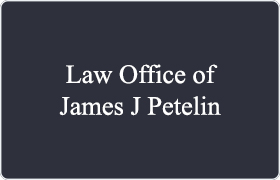Ryde Felony Lawyer, California
Sponsored Law Firm
-
 x
x

Click For More Info:
-
Law Office of James J Petelin
1550 Humboldt Road, Suite 4 Chico, CA 95928» view mapDivorce & Family Law Effective, Client-Focused Representation
James Petelin is a practicing attorney in the state of California who focuses on Family Law.
800-943-9701
Richard Thomas Dudek
✓ VERIFIEDRichard Dudek knows the Sacramento courts, procedures and prosecutors. Our highly skilled defense team includes licensed private investigators who use... (more)
Darrell G. Griffin
✓ VERIFIEDDarrell started in private practice in civil law, but quickly realized a different passion. He was a prosecutor for many years. As the Department le... (more)
Jo-Anna Marie Nieves
✓ VERIFIEDArmed with considerable experience working for the District Attorney in Sacramento, CA and her voluminous representation of large corporate clients in... (more)
Michael Weisberg
FREE CONSULTATION
CONTACTKarna Elizabeth Harrigfeld
Peter John Marek
Grant Leonard Carey Brooks
Eric H Hintz
FREE CONSULTATION
CONTACT James Petelin Chico, CA
James Petelin Chico, CA AboutLaw Office of James J Petelin
AboutLaw Office of James J Petelin Practice AreasExpertise
Practice AreasExpertise




